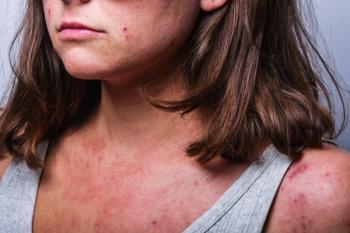
Once-weekly somapacitan injection shows efficacy in children with GHD
Data from a recent study of once weekly somapacitan injection shows positive results for prepubertal children with growth hormone deficiency (GHD).
Recently, Novo Nordisk A/S announced phase 3 REAL 4 (Reversible Albumin,
GHD is characterized as a rare disease that is estimated to affect approximately 1 in 3500 to 10,000 children, according to the press release announcing the new data. Symptoms of GHD usually start in early life and lead to short stature and other growth-related health complications.
The study, which was randomized, multinational, open label, and had an active-controlled parallel group, is part of the ongoing REAL clinical study program and, according to the company, was designed to evaluate the efficacy and safety of somapacitan injection in children with growth disorders.
Based on study results, once-weekly somapacitan was shown to work as well as daily somapacitan (Norditropin) for children with GHD, which met its primary endpoint of noninferiority. Additionally, according to the press release, the most common adverse events observed in ≥5% included headache, nasopharyngitis, pyrexia, pain in extremity, bronchitis, and vomiting.
“The existing treatment options available for children with GHD require daily injections for many years,” said Bradley Miller, MD, PhD, Division of Pediatric Endocrinology, University of Minnesota Masonic Children's Hospital in Minneapolis, in the release. “Based on the results of the REAL 4 study, there is potential for a once-weekly option for children with growth hormone deficiency.”
Reference:
Novo Nordisk A/S. Sogroya data show potential as once-weekly treatment in children living with growth hormone deficiency. GlobeNewswire. Press release. Published June 12, 2022. Accessed June 14, 2022.
Newsletter
Access practical, evidence-based guidance to support better care for our youngest patients. Join our email list for the latest clinical updates.





